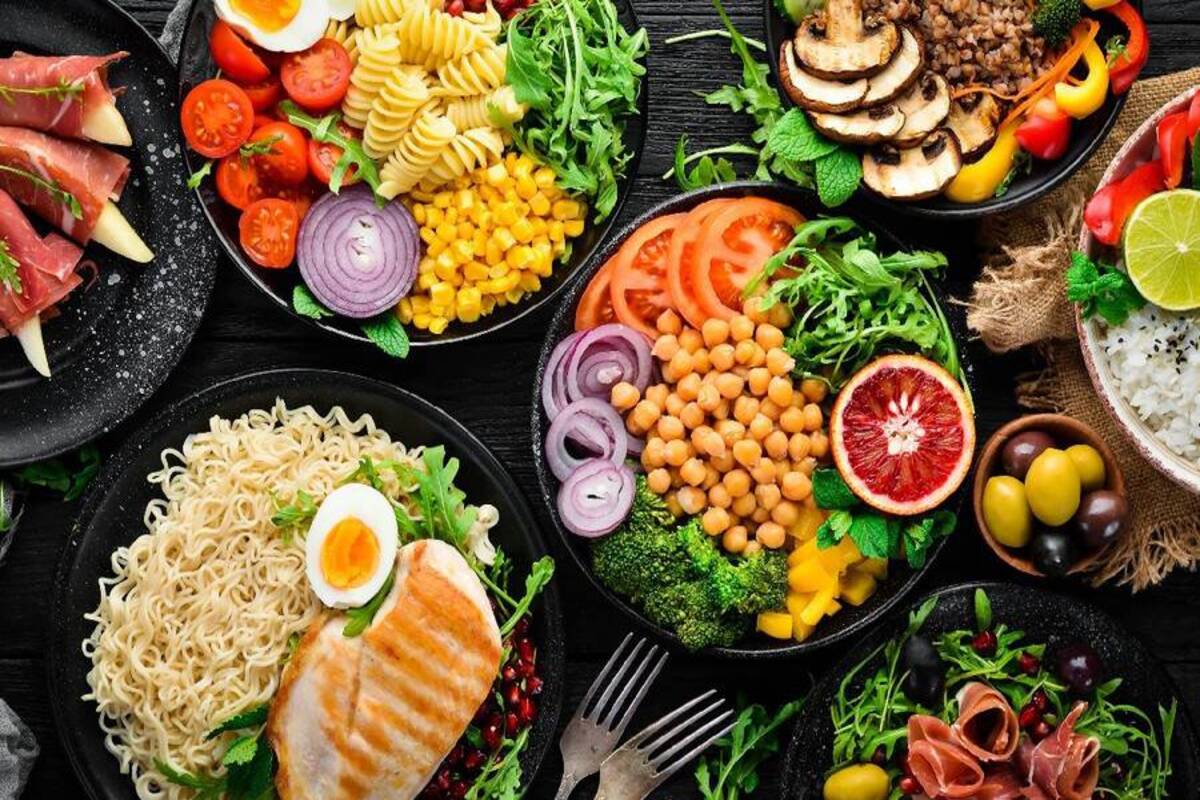The term “super food” is a somewhat new term referring to foods that offer maximum nutritional benefits for minimal calories. They are packed with vitamins, minerals, and antioxidants.
No standard norms or legal explanations classify any food as a super food. However, most super foods are plant-based.
Super Food 1: Purple, Red, and Blue Grapes
Grapes, especially dark-coloured ones, are loaded with vitamins that may help protect people against cancer and heart disease. Grapes also contain vitamin C and selenium.
Super Food 2: Blueberries
Recent animal studies suggest that blueberries may help protect cells from damage and lower inflammation. Blueberries contain many of the vitamins and minerals known to strengthen the immune system, along with key phytochemicals that may help protect against cancer and attires blockages.
Super Food 3: Red Berries
Berries, especially raspberries and strawberries, contain ellagic acid, another phytochemical that may help protect against cancer-causing agents in the diet and the environment.
Super Food 4: Nuts
Nuts are one of the most balanced foods on the planet. They offer a good dose of “healthy” fats along with a smaller amount of protein and carbohydrate. Each type of nut offers a unique profile of minerals, phytochemicals, and types of fat. Walnuts are the highest in plant omega-3s, for example, while Brazil nuts are best for selenium.
Super Food 5: Dark Green Veggies
It’s tough to compete with the nutritional muscle of broccoli and spinach. Kale and collard greens are also members of the esteemed dark green vegetable group. These super veggies are high in nutrients that help fight disease, including vitamins C, E, and A, and calcium. They’re also loaded with magnesium and potassium.
Need another reason to go green? These veggies are brimming with antioxidant phytochemicals such as kaempferol, which may help dilate blood vessels and may have cancer-fighting properties. Leeks, lettuce, and kale provide lute-in and quercetin, both strong antioxidants.
Super Food 6: Tea
With one sip of tea, you get two potent phytochemicals — anthocyanin and pro anthocyanin. Both are antioxidants that help fight inflammation. Add to that a healthy dose of catechins, antioxidants that are thought to block cell damage that can lead to cancer.
That’s just the beginning. Green tea in particular, contributes many other protective phytochemicals. The catechin epigallocatechin gallate (EGCG), which is especially abundant in green tea, is a particularly potent antioxidant.
Super Food 7: Whole Grains
Making this one dietary change may significantly improve your health: Switch to whole grains. For example, eat whole grain bread instead of white bread, wild or brown rice instead of white rice, corn tortillas instead of flour tortillas.
Some research has shown that people who eat at least one serving of whole grains a day have a lower risk of heart disease and stroke. Whole grains deliver zinc and selenium, in addition to phytochemicals thought to help protect against heart disease and cancer.
Super Food 8: Fish
Fish provides powerful omega-3 fatty acids. Evidence suggests that omega-3s, particularly those coming from fish, may help prevent inflammatory diseases, such as coronary heart disease. Although all fish have some omega-3s, the stars include sardines, salmon, oysters, mackerel, tuna steak, wild rainbow trout, shark steak, albacore tuna, and herring.
Fish also offers an essential nutrient that’s hard to find in food: vitamin D.
Skip sticks and deep fried fish, go fresh when possible, two or three times a week.
It’s important to note that while super foods are good for your health and provide many nutrients you need on a daily basis, eating super foods alone does not contribute to a healthy diet. Eating too much of one type of food can actually be detrimental to your health and prevent you from getting all of the nutrients you need. For this reason, super foods should be added to a well-balanced diet, not replace one.
Super food 9: Ginger
A little-known super food but widely used spice ginger can give your immune system a boost, fight infections and protect against cancer. Ginger has been used throughout history as a treatment for nausea, digestive problems and muscle pain but has also been known to reduce inflammation and lower blood sugar. Try adding ginger to meals as a spice, drinking it in tea or taking ginger root supplements.
Super food 10: Quinoa
Quinoa is a super grain that is high in fibre and protein. In fact, it contains more protein than any other grain. Besides high levels of protein, quinoa is also a source of iron and potassium.
Quinoa is technically not a grain but is actually a seed. Quinoa is naturally gluten-free and is often used as a rice substitute. On top of all of its other benefits, quinoa is also a great source of many vitamins, minerals and antioxidants.
It is important to note that while super foods are good for your health and provide many nutrients you need on a daily basis, eating super foods alone does not contribute to a healthy diet. Eating too much of one type of food can actually be detrimental to your health and prevent you from getting all of the nutrients you need. For this reason, super foods should be added to a well-balanced diet, not replace one.











